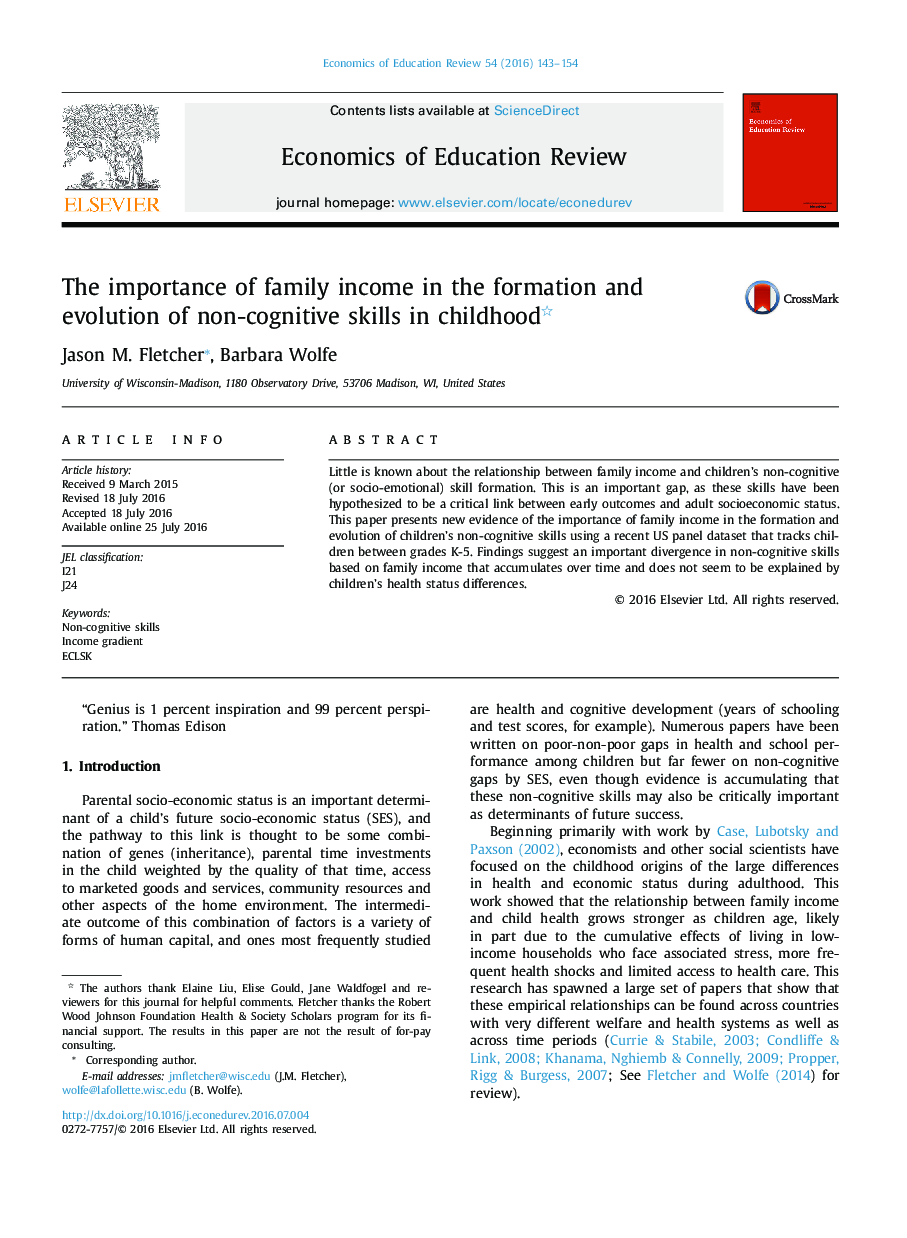| کد مقاله | کد نشریه | سال انتشار | مقاله انگلیسی | نسخه تمام متن |
|---|---|---|---|---|
| 354241 | 1434809 | 2016 | 12 صفحه PDF | دانلود رایگان |
• Track a representative cohort of US school children from Kindergarten to 5th grade.
• We examine the family income gradient for non-cognitive skills as children age.
• The gradient is large at school entry across multiple domains and increases.
• Results are a step toward understanding whether policies may reduce gaps.
• Policies may focus on early life, as large gaps are present at school entry.
Little is known about the relationship between family income and children's non-cognitive (or socio-emotional) skill formation. This is an important gap, as these skills have been hypothesized to be a critical link between early outcomes and adult socioeconomic status. This paper presents new evidence of the importance of family income in the formation and evolution of children's non-cognitive skills using a recent US panel dataset that tracks children between grades K-5. Findings suggest an important divergence in non-cognitive skills based on family income that accumulates over time and does not seem to be explained by children's health status differences.
Journal: Economics of Education Review - Volume 54, October 2016, Pages 143–154
